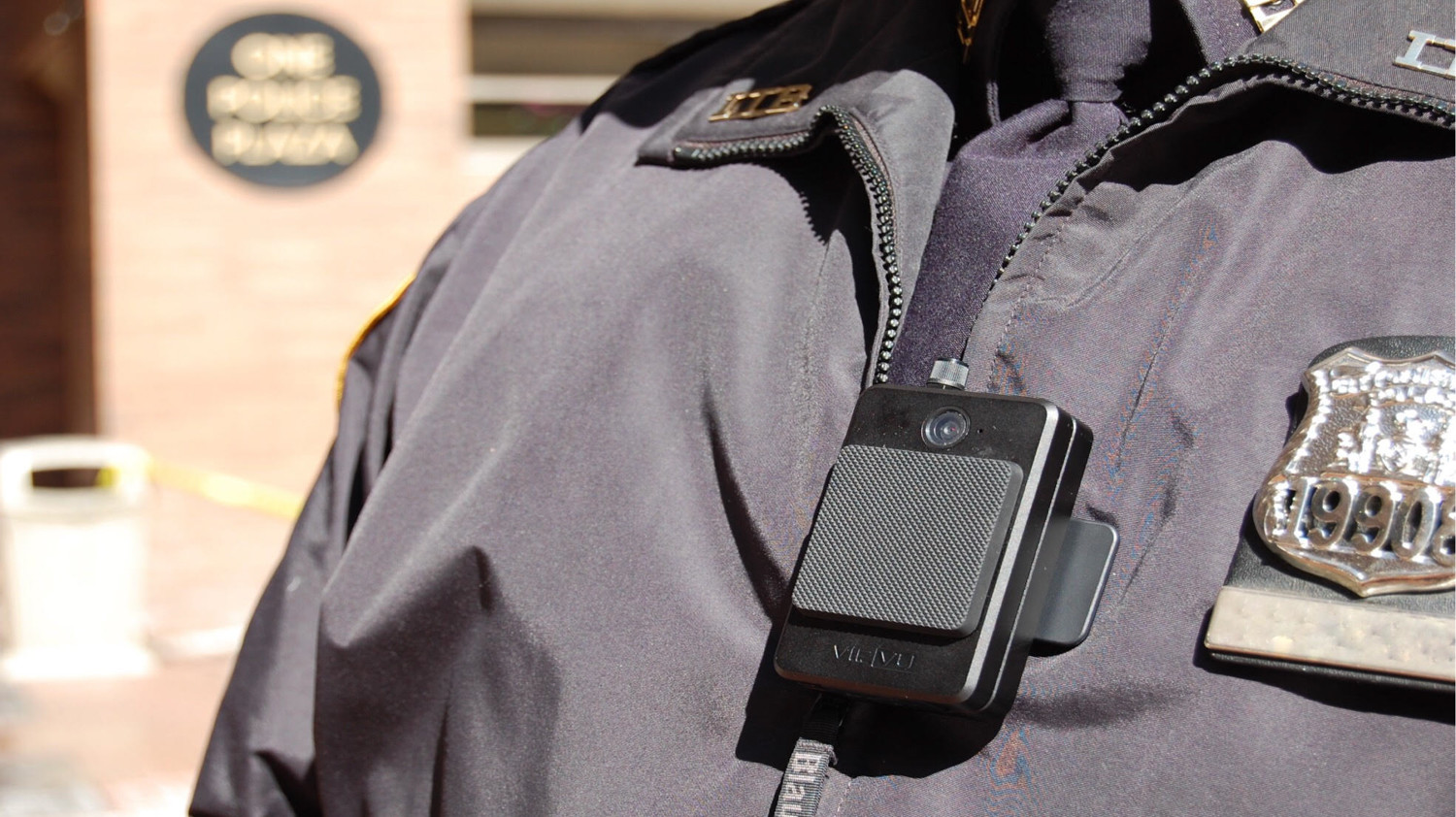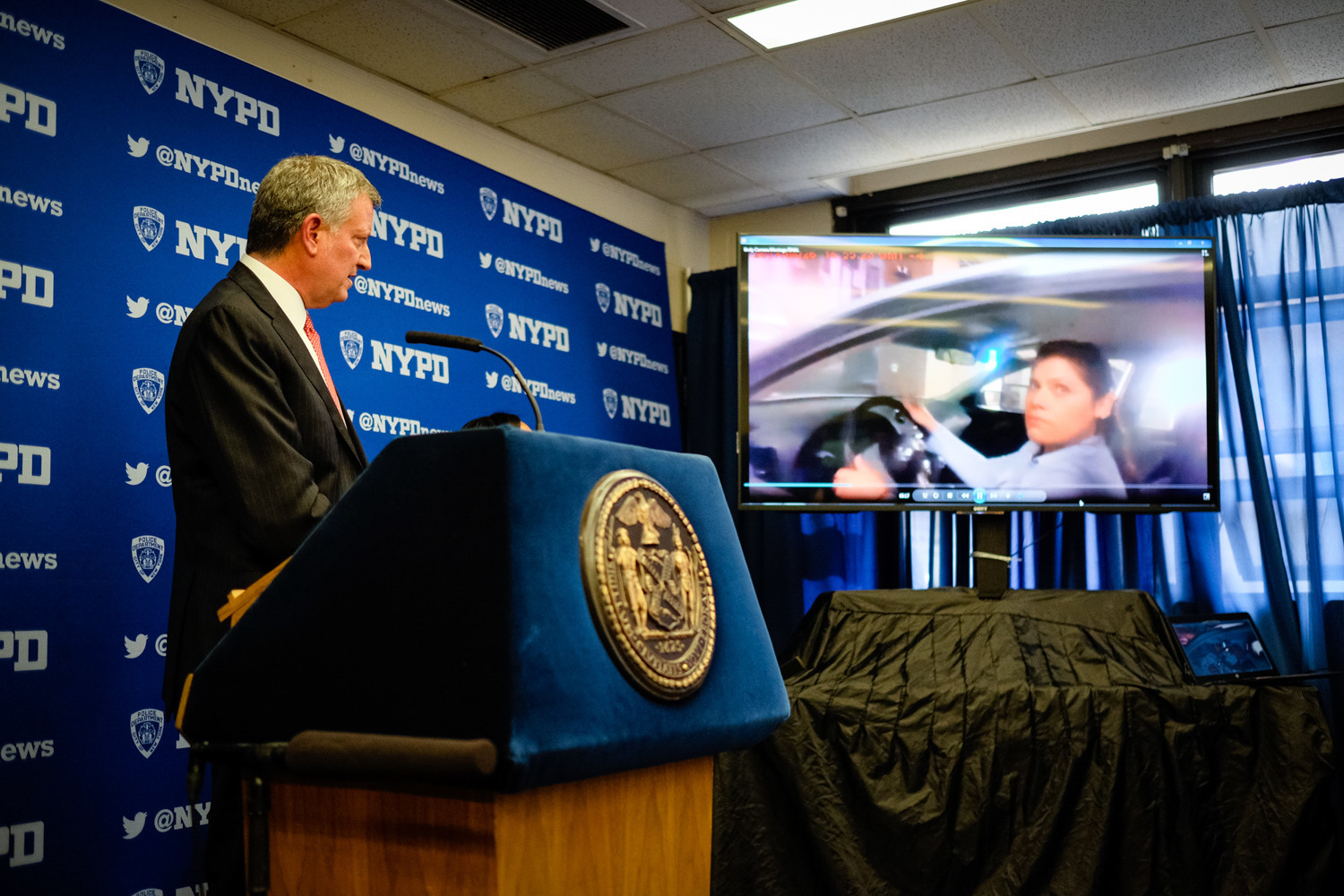Precinct prepares for body camera roll-out
Body cameras for city patrol officers are coming by the end of 2018 — one year earlier than expected. But officers in the New York Police Department’s 50th Precinct could be seeing such technology as early as April and May.
Supporters see the cameras as an important step forward to improving police-community relations by increasing transparency and accountability at a time when crime citywide has reached a new low — 2017 saw the fewest murders and shootings ever recorded in the modern era, with the lowest per-capita murder rate since 1951.
The accelerated rollout is good news for Terence O’Toole, and not just for the 50th Precinct he leads.
“It provides a record of exactly what’s going on,” he said. “Any of the programs that we’ve seen so far with the cameras, you’ve seen the officers take the time to try and talk to people.”
New York Police Department cops were first equipped with body cameras during a pilot program last April. When people are filmed, they tend to be more relaxed and resist less, O’Toole said, citing national studies — and that applies to both police and civilians.
“People who would normally be violent and boisterous, when they’re told they’re on camera, calm down,” O’Toole said.
Plenty of preparation
While the 5-0 could see cameras by late spring, there’s still a lot of infrastructure work to be done, O’Toole said, like installing ports to dock cameras, enabling footage to be seamlessly downloaded. But first the Kingsbridge precinct is upgrading its computer servers and switches in preparation for the rollout.
Mayor Bill de Blasio’s preliminary budget has pledged more than $27 million over a three-year period to launch the program, including just under $6 million in the first year. That covers cameras and technology upgrades department-wide, as well as other costs.
The NYPD has already deployed nearly 2,500 body cameras with the goal to increase rollout from 800 cameras monthly to up to 2,000 a month beginning in March. The plan is to equip 18,000 police officers and detective specialists on patrol by the end of the year.
But not everyone is happy about the faster rollout. Perhaps one of its most vociferous critics is Patrolmen’s Benevolent Association president Patrick Lynch.
“It makes no sense to accelerate the program while there are so many unresolved issues regarding the use of bodycams, including the very basic question of whether they actually produce a meaningful change in the interaction between police officers and civilians on the street,” the union president said in a statement. “The largest, most rigorous study to date suggests they have no such effect.”
Lynch also pointed to jurisdictions across the country confronting issues involving due process, safety and privacy of police officers, and those who are the subject of captured footage, as well as a hefty toll on municipal resources.
Going to court
The PBA is taking its beef with the cameras to court, filing suit against the NYPD and the city early last month for “the arbitrary and illegal release of bodycam video,” Lynch said, adding, “It would be much more prudent to slow down the rollout while these difficult legal and practical issues are resolved.”
Release of body camera footage without a court order violates a state civil rights law that makes officer disciplinary records confidential, according to the lawsuit.
Jonathan Darche, executive director of the Civilian Complaint Review Board — the city’s independent police oversight agency — said video footage helps significantly when investigating misconduct allegations against police officers.
“The body-worn camera program could revolutionize our ability to determine what actually happened during incidents of alleged police misconduct,” Darche said, in a statement.
CCRB’s most recent report shows the agency had much more success substantiating claims in investigations with video — 33 percent — compared to those lacking video — 14 percent — in the first half of the last year.
But the big question of whether the body-worn camera rollout — and other crime-fighting technology — will ultimately make the city safer is one only time can answer. In the meantime, O’Toole is optimistic.
“I think in the long run, it will,” O’Toole said. “We’re trying to incorporate as many different things as we can — between Argus cameras, ShotSpotter, body-worn cameras, cell phones — the whole plan is to make the city as safe as we can.”









